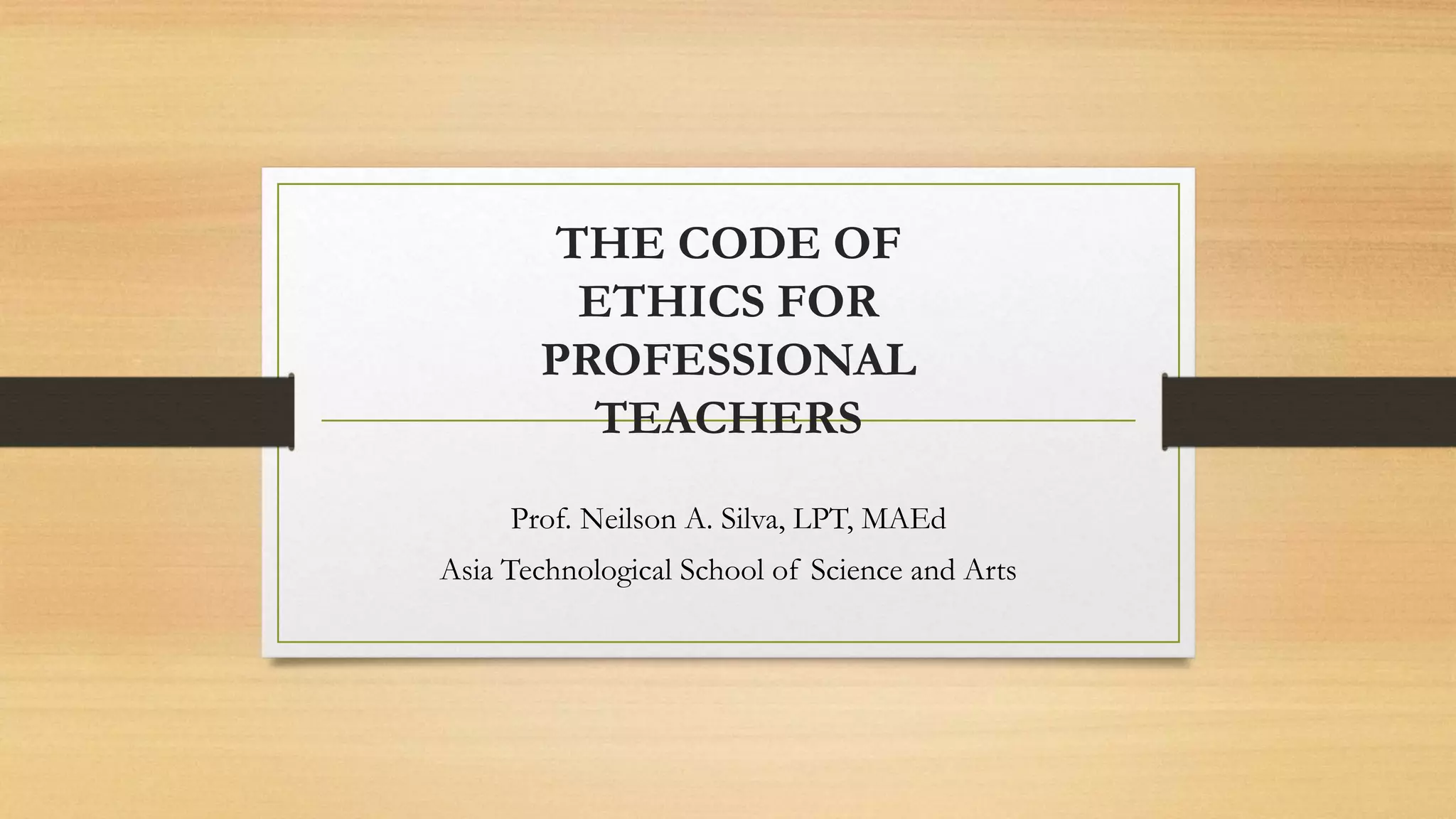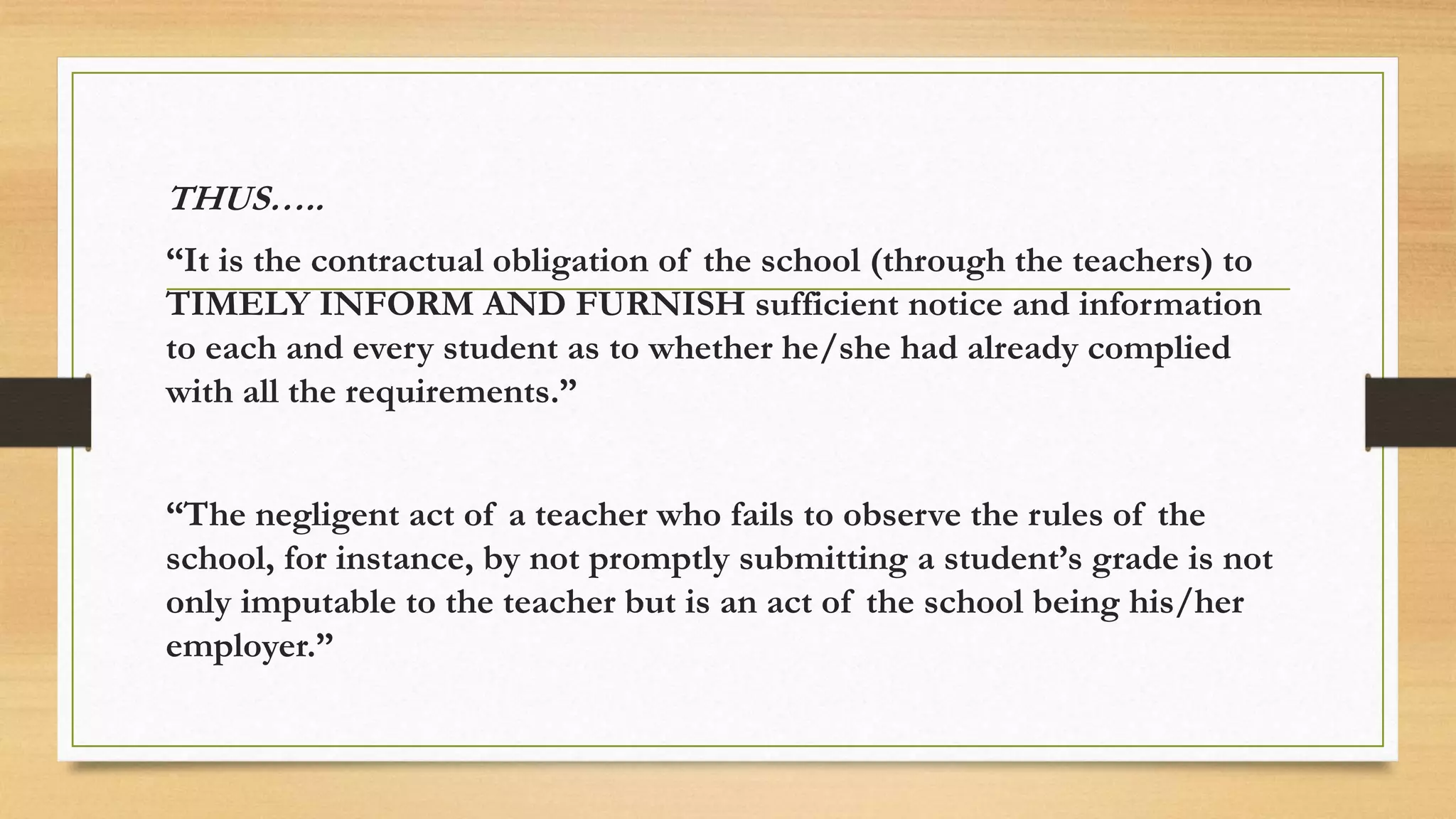This document outlines the key duties and responsibilities of professional teachers according to the Code of Ethics for Professional Teachers. It discusses that teachers are held to high moral standards and must behave honorably at all times. Teachers have an obligation to provide quality education and ensure students are evaluated fairly based on academic merit alone. As parents to their students, teachers must properly exercise authority over students with care, respect and without physical punishment. Any violations of these ethical standards can result in license revocation.

































